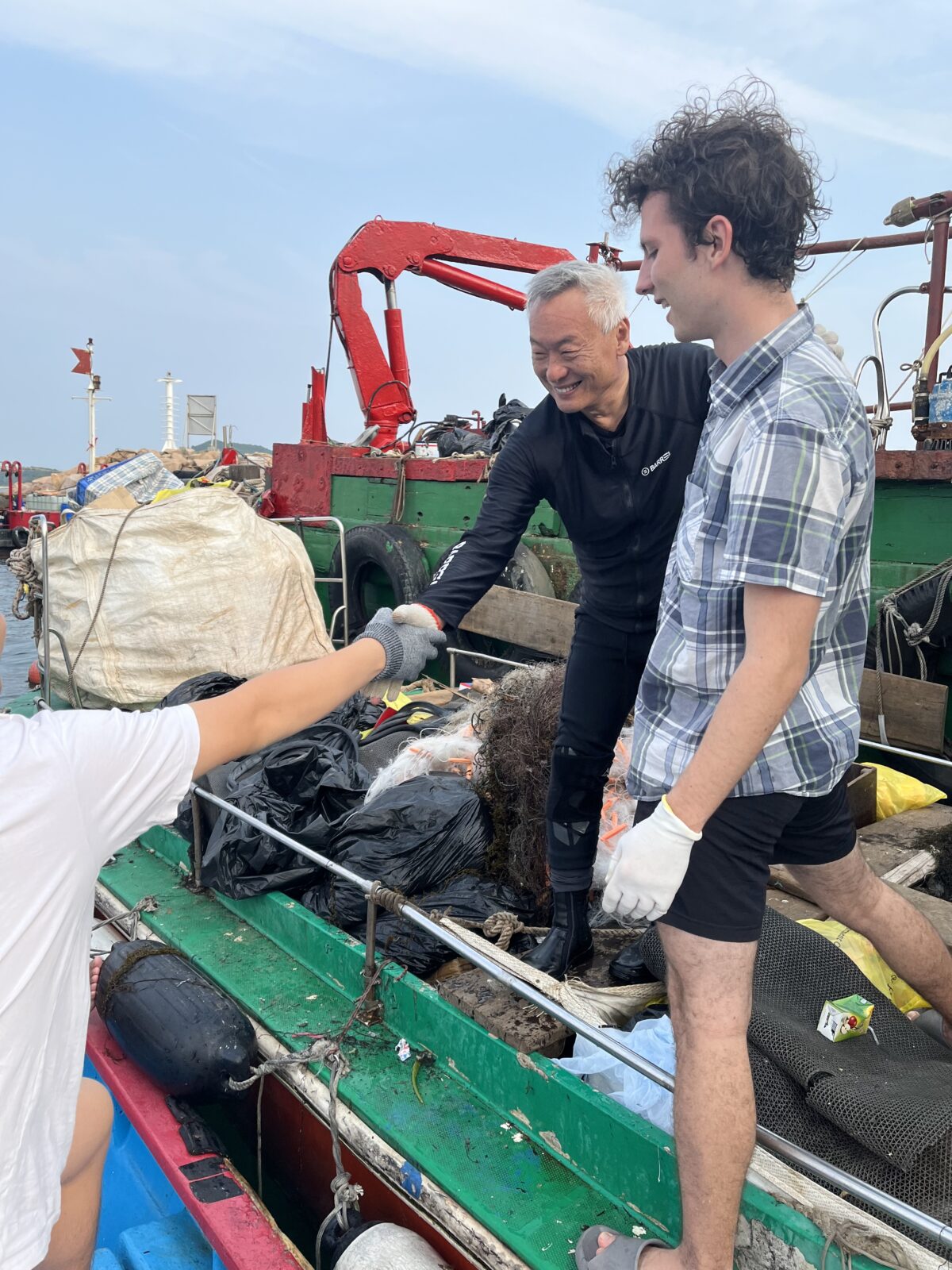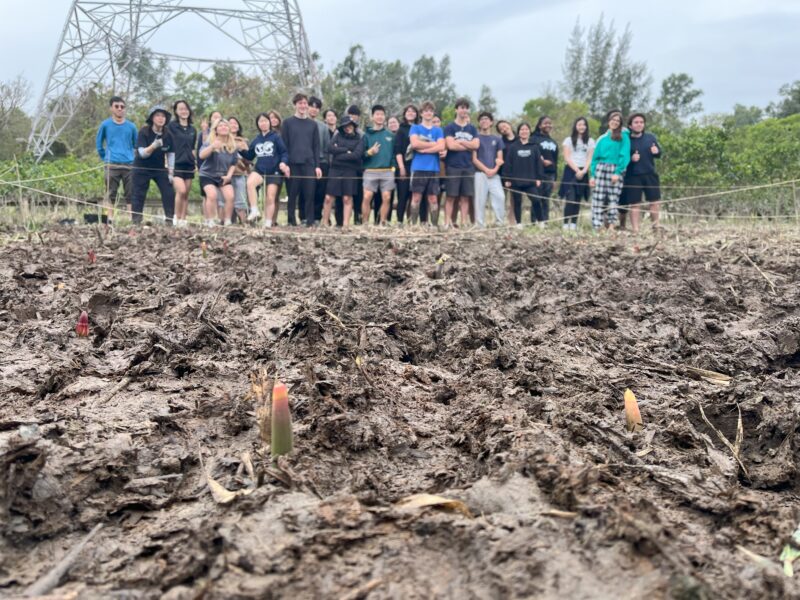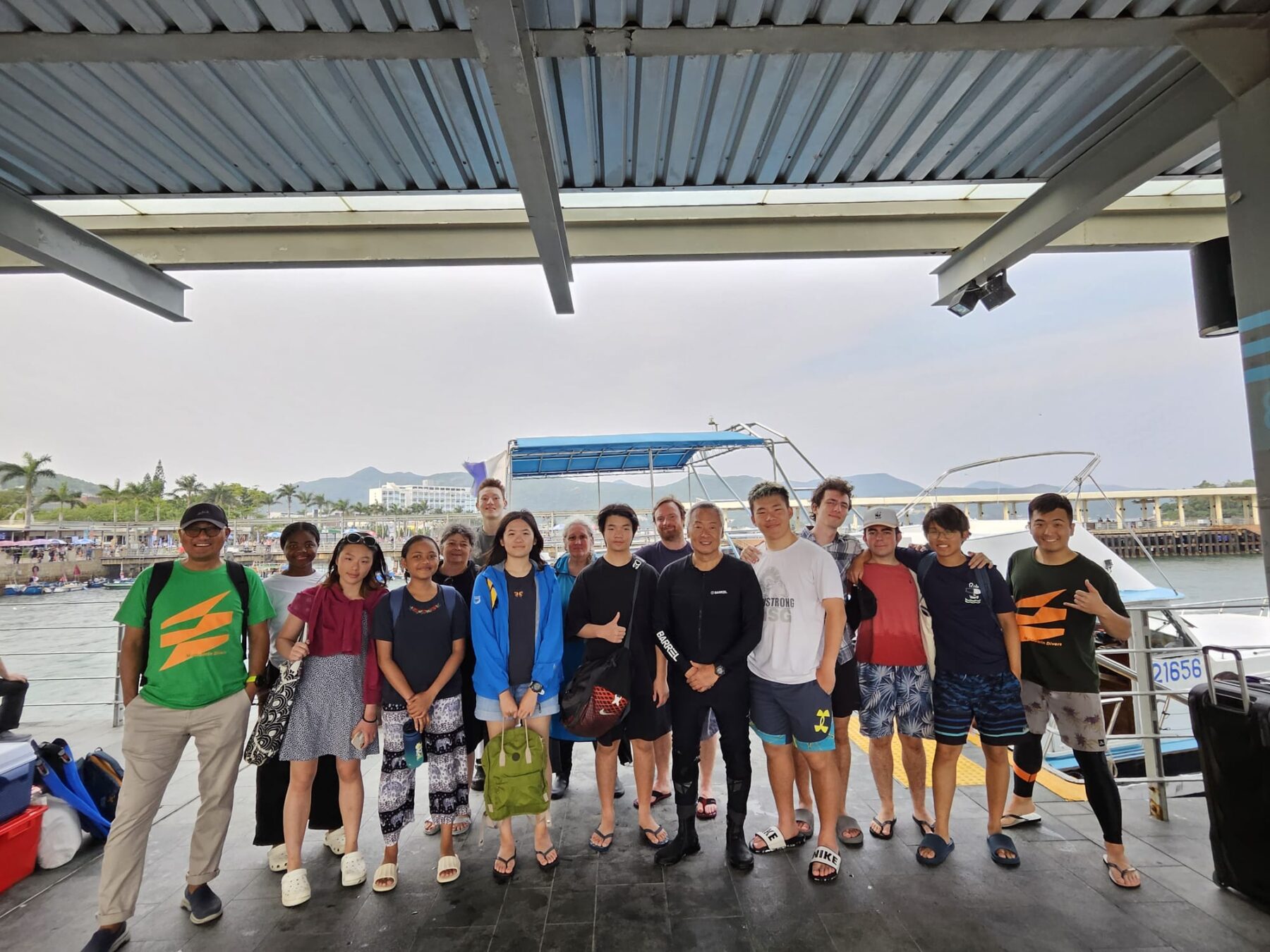
Ghost net Busters
Details
On April 13th 2024, Li Po Chun UWC’s Coral Monitoring group joined Harry Chan, recipient of the Hong Kong 2020 Medal of Honour (in recognition of dedicated community service and contribution to the promotion of environment and conservation education for a Dive Against Debris activity. 10 students participated in the activity, which involves diving in areas where ocean currents tend to deposit waste, retrieving the waste from the seafloor to be disposed of safely and reporting the data to the Professional Association of Diving Instructors (PADI), with the aim of reducing marine debris by 50% in targeted countries by 2030:
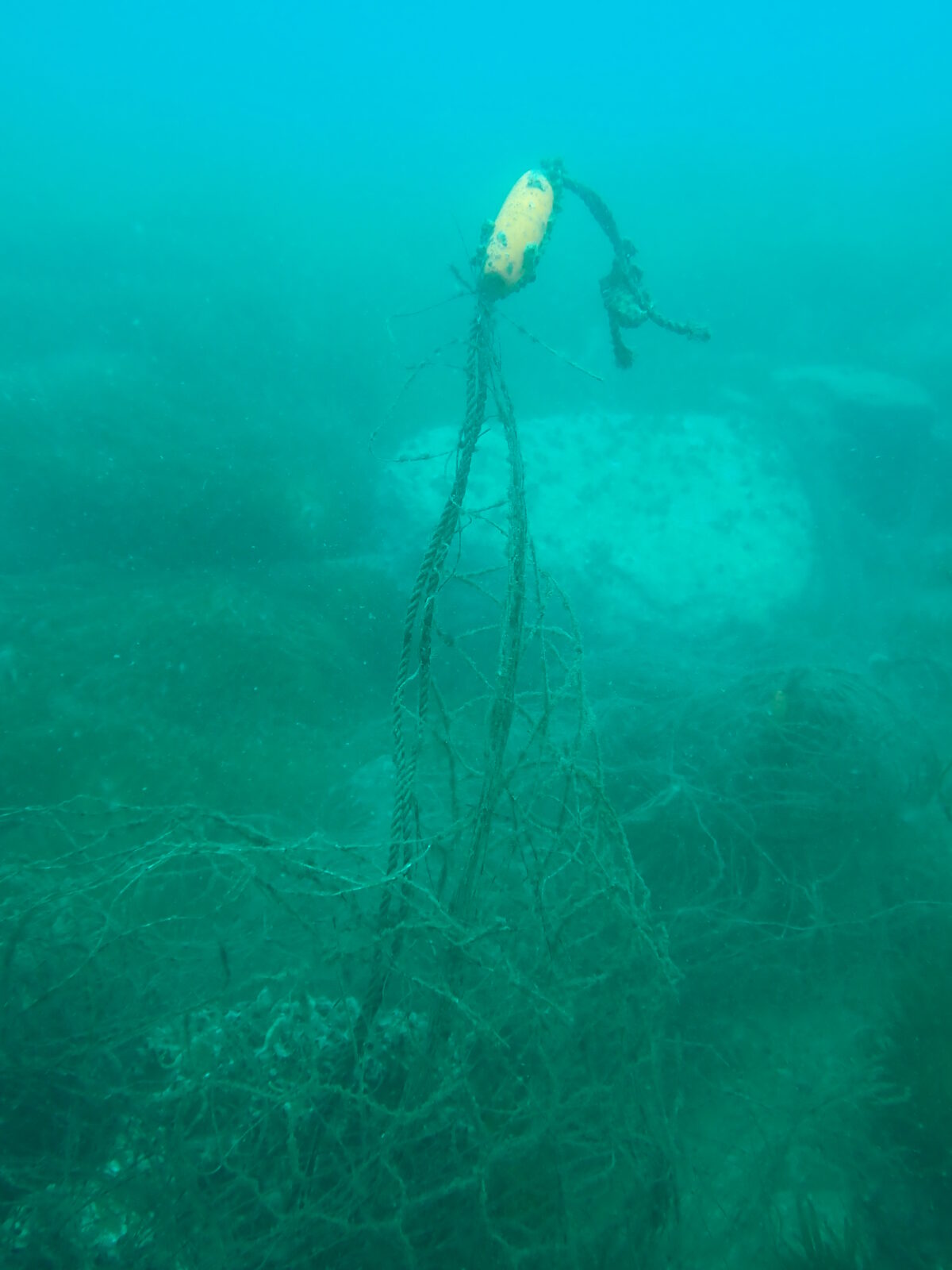
A ghost net photographed by one of the Coral Monitoring staff supervisors
“A Dive Against Debris Diver takes direct ‘fins on’ action for the ocean, collecting critical survey data from any or every dive that can be used by marine researchers and policymakers for conservation efforts.” (PADI)
The group dived at two sites in Hong Kong; the first being Basalt Island, a Site Of Special Scientific Interest, which homes a biodiverse coastal margin that is known as a popular fishing spot. The students encountered many different coral and fish species, and were able to retrieve a number of fishing hooks and other debris from the seabed in this area.
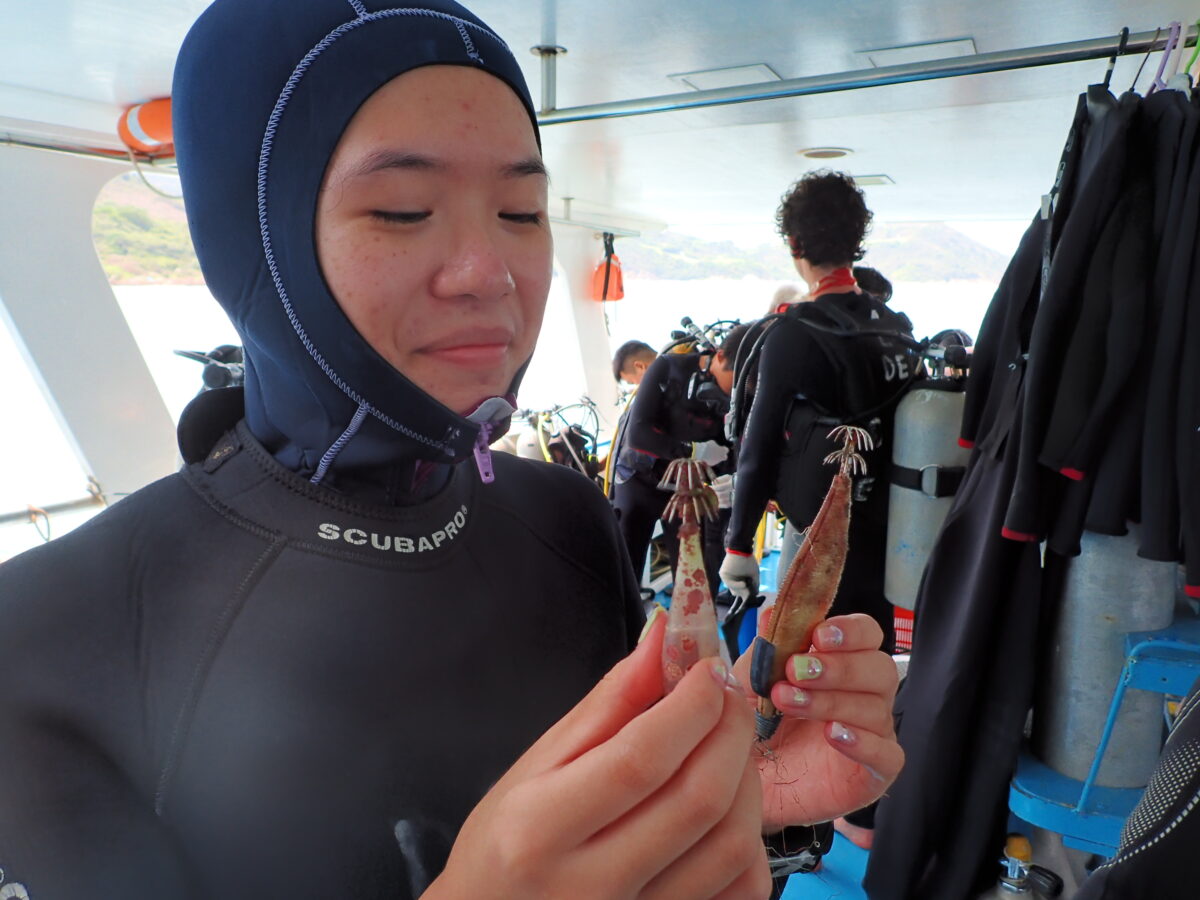
Coral Monitor Soso with two fishing hooks retrieved from Basalt Island
For the second dive, closer to the mainland, the divers split into groups to cover a greater area, with some retrieving a large number of golf balls that had come from a local course. One group encountered two large ghost nets, a fishing net that had been abandoned in the sea. Ghost nets are particularly dangerous for the marine ecosystem, as they can trap an array of marine animals, as well as causing greater destruction by smothering coral reefs. Ghost nets are a particular issue for sustainability, where overfishing, and the mass consumption of seafood, is a real challenge, both in Hong Kong and globally.
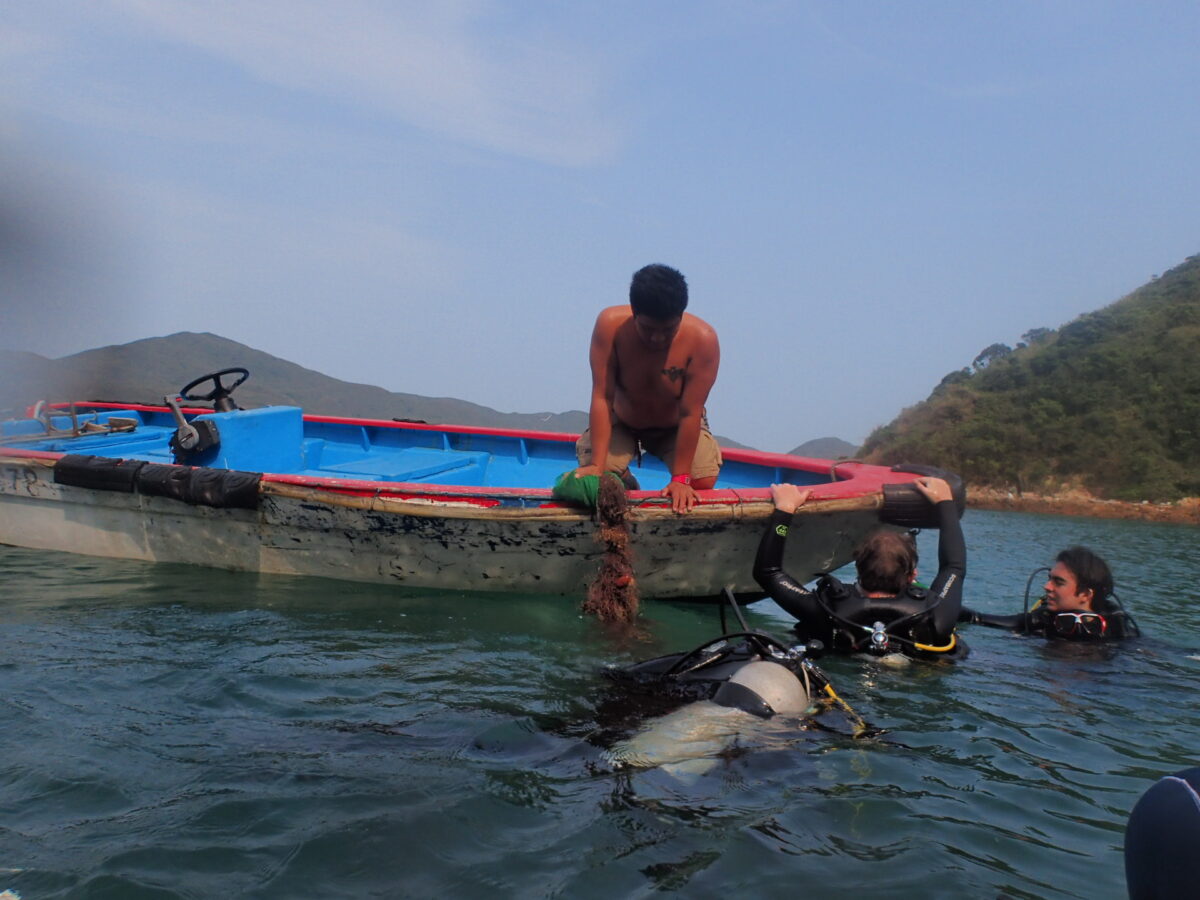
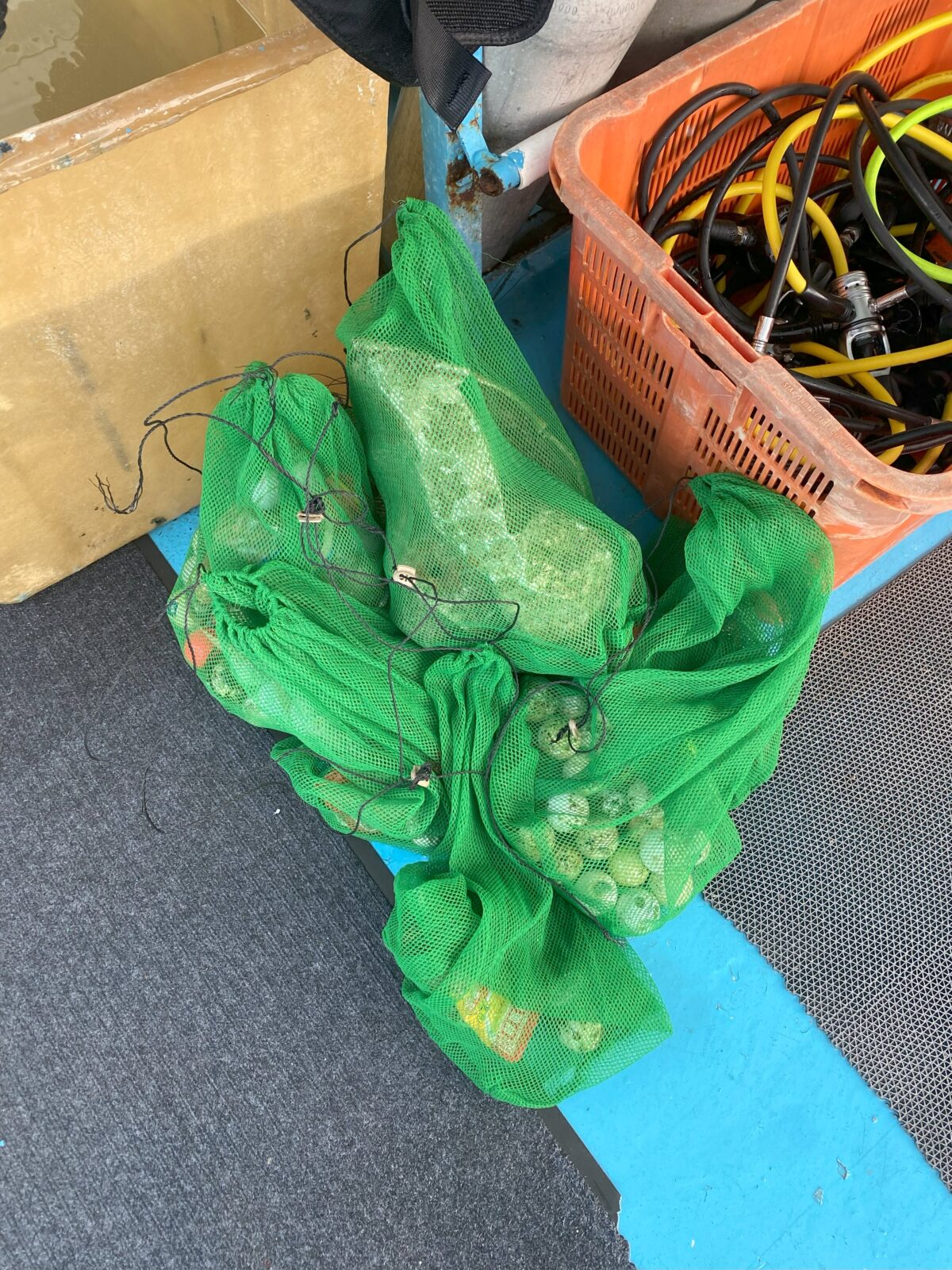
Ghost nets being taken from the sea and placed aboard the speedboat.
Debris collected from the ocean by the Coral Monitors
Removing a ghost net is a challenging and potentially dangerous task, but with the expert supervision of Harry Chan, the group were able to safely pull the 50kg net free and bring it back to our dive boat. Once the dive boat returned back to the coastline, Harry Chan then supervised the safe disposal of the ghost net, with the assistance of students Frantisek Slama and Abe Qin, on a waste barge.
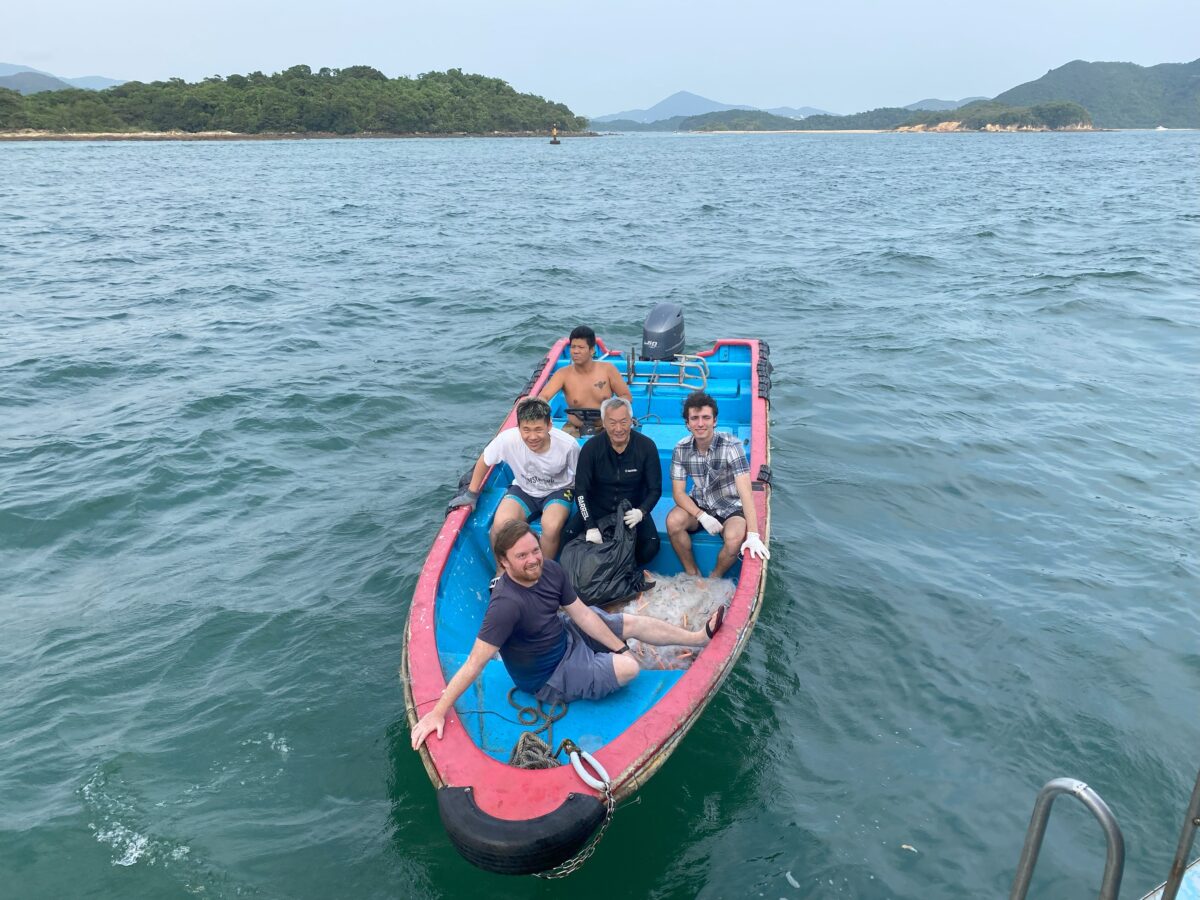
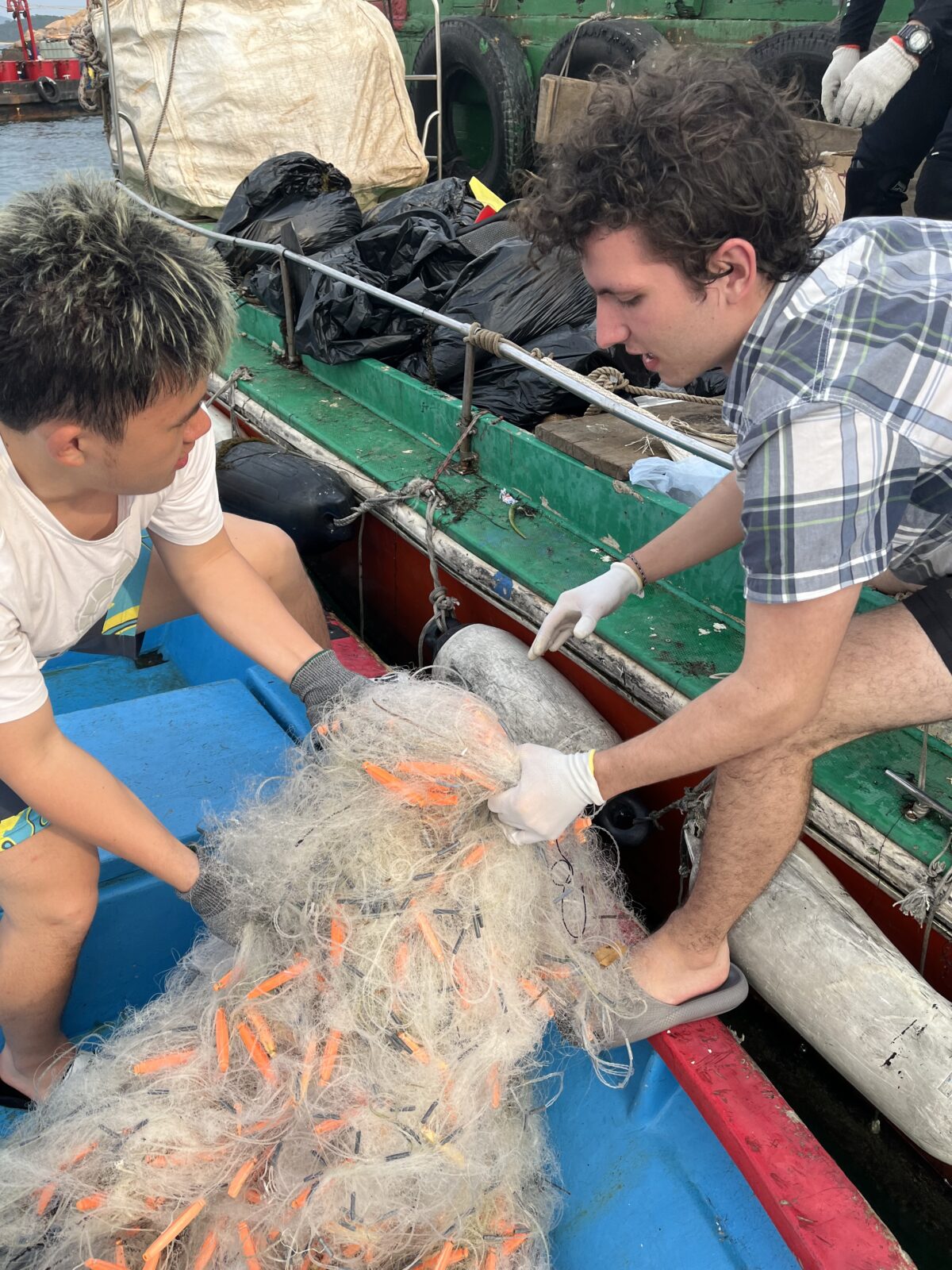
Coral Monitors Franta and Abe transferring the ghost net from the speedboat to the waste barge.
The students felt a great sense of accomplishment from the activity, being able to contribute to conserving the oceans in their local area, as well as learning more about sustainable practices:
“From the Dive against debris, I think I was able to really recognize how much trash can be in the water and how much more there is that I can’t see.”
“I learned the contribution of marine life and ecosystems towards the local community, and I experienced the destructive consequences of unthoughtful human activities such as farming, trash dumping, land destruction and excessive fishing towards the equilibrium of local diversity.”
“I learned Dive against debris skills, including how to cut ghost nets out of the ocean, and picking up other items of rubbish.”
“Learning how to conduct citizen science marine data collection methods.”
“I think diving with experts and other people who are really enthusiastic about the marine environment like diving with Harry was really interesting and fun as we get to learn their perspective on the ocean.”
The Coral Monitoring group is extremely grateful to Harry Chan for his infectious enthusiasm and sharing of experience throughout the activity, and is looking forward to a continuing and fruitful relationship.
![]()
